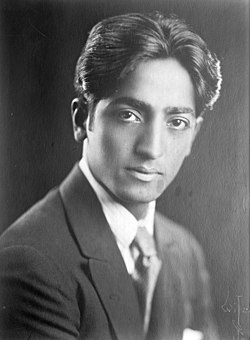Jiddu Krishnamurti Quote
Things, relationship, and ideas are so transparently impermanent, we are ever made unhappy by them...Things are impermanent, they wear out and are lost; relationship is constant friction and death awaits; ideas and beliefs have no stability, no permanency. We seek happiness in them and yet do not realize their impermanency. So sorrow becomes our constant companion and overcoming it our problem.
Jiddu Krishnamurti
Things, relationship, and ideas are so transparently impermanent, we are ever made unhappy by them...Things are impermanent, they wear out and are lost; relationship is constant friction and death awaits; ideas and beliefs have no stability, no permanency. We seek happiness in them and yet do not realize their impermanency. So sorrow becomes our constant companion and overcoming it our problem.
Tags:
philosophy of life
Related Quotes
Certainly we can say that the pace of modern life, increased and supported by our technology in general and our personal electronics in particular, has resulted in a short attention span and an addict...
Arthur Rosenfeld
Tags:
being, complicated, critical thinking, daoism, emotion, feeling, hectic, life, meditation, modern life
Dad?" Jesus asked."Yes, son?" God asked."Why are people so scared of dying?" Jesus asked."Because they believe that they only get one life and then they die," God said."But dad, nothing ever dies," Je...
Anthony T. Hincks
Tags:
afraid, die, dying, earth, god, jesus, looked, philosophy of life, philosophy of religion, religion
About Jiddu Krishnamurti
Jiddu Krishnamurti ( JID-oo KRISH-nə-MOOR-tee; 11 May 1895 – 17 February 1986) was an Indian spiritual speaker and writer. Adopted by members of the Theosophical tradition as a child because of his aura as perceived by Theosophic leader Charles Leadbetter, "without a particle of selfishness in it," he was raised to fill the advanced role of World Teacher, but in adulthood he rejected this mantle and distanced himself from the related religious movement. He nevertheless spent the rest of his life speaking to groups and individuals around the world to set mankind free, gaining a wider recognition in the 1950s, after Aldous Huxley had introduced him to his mainstream publisher and the publication of The First and Last Freedom (1954). Many of his talks have been published since, and he also wrote a few books himself, among them Commentaries on Living (1956–60) and Krishnamurti's Notebook (written 1961-62). His last public talk was in January 1986, a month before his death at his home in Ojai, California.
According to Krishnamurti an "immense energy and intelligence went through this body," a consciousness he called "the otherness" and which had always been there, but became more clear over time, as did his intellectual capability to express it in words. During his life he tried to share this experience in 'the teachings', but a few days before his death he stated that nobody had understood what his body went through, and after his death, this consciousness would be gone, and no other body would support it "for many hundred years."
Krishnamurti asserted that "truth is a pathless land" and advised against following any doctrine, discipline, teacher, guru, or authority, including himself. He dismissed the need for contrived meditation techniques, instead emphasizing the practice of choiceless awareness as the essence of "true meditation".
His supporters — working through non-profit foundations in India, Britain, and the United States — oversee several independent schools based on his views on education, and continue to distribute his thousands of talks, group and individual discussions, and writings in a variety of media formats and languages.
According to Krishnamurti an "immense energy and intelligence went through this body," a consciousness he called "the otherness" and which had always been there, but became more clear over time, as did his intellectual capability to express it in words. During his life he tried to share this experience in 'the teachings', but a few days before his death he stated that nobody had understood what his body went through, and after his death, this consciousness would be gone, and no other body would support it "for many hundred years."
Krishnamurti asserted that "truth is a pathless land" and advised against following any doctrine, discipline, teacher, guru, or authority, including himself. He dismissed the need for contrived meditation techniques, instead emphasizing the practice of choiceless awareness as the essence of "true meditation".
His supporters — working through non-profit foundations in India, Britain, and the United States — oversee several independent schools based on his views on education, and continue to distribute his thousands of talks, group and individual discussions, and writings in a variety of media formats and languages.
